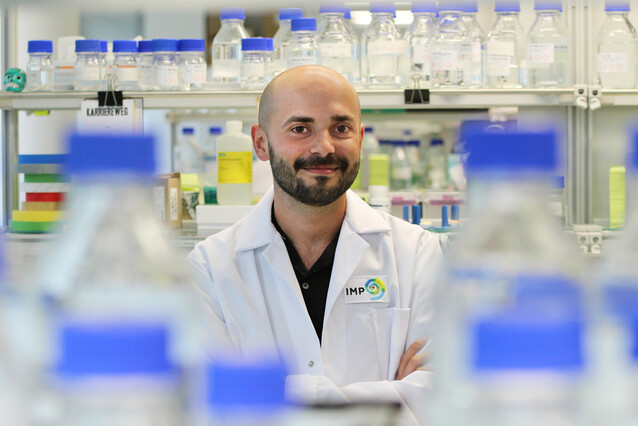Filip Nemcko among Forbes Slovakia “30 Under 30”
Filip Nemcko, recent PhD graduate and now Research Associate with Alexander Stark at the IMP, is featured in Forbes Slovakia’s “30 Under 30” list of 2024. Nemcko was selected in recognition of his contributions to the development of a method that significantly speeds up the understanding of human gene functions.
Forbes “30 Under 30” lists are compiled annually to highlight individuals under the age of 30 who have made significant achievements and contributions in various fields – including business, technology, finance, healthcare, media, and entertainment. Their aim is to recognise young leaders, entrepreneurs, innovators, and other game-changers who are leaving a mark in their respective areas and are poised to have a lasting impact on the world.
Filip Nemcko, a recent PhD graduate and now Research Associate in the lab of Alexander Stark, just earned a mention among Forbes Slovakia’s “30 Under 30” list of 2024 for his contributions to the development of a method that significantly speeds up the understanding of human gene functions. The research has the potential for advancing our knowledge of basic biological processes and genetic diseases.
“It’s very gratifying to be recognised by Forbes Slovakia, it shows how much I've benefitted from the opportunities, guidance, and teamwork throughout my science journey,” says Nemcko. “I’m excited to continue building on this momentum and keep pushing the limits of what is possible in biomedical research.”
Filip Nemcko is a Research Associate in the lab of Alexander Stark, which he first joined as a PhD student in 2018. His doctoral studies were supported by a prestigious grant of the Boehringer Ingelheim Fonds. Throughout his career, Nemcko has participated in research within scientific teams in the Czech Republic, USA, and Austria. He conducted his undergraduate studies at Charles University in Prague. He was a member of the first Czech team that finished second in the international competition in synthetic biology – also known as ‘Internationally Genetically Engineered Machine’ (iGEM) – for a prototype that allowed the detection of cancer cells from blood using yeast. As a secondary school student, Nemcko represented Slovakia at two international biology olympiads (IBOs) in Singapore and Switzerland, where he earned a bronze medal.
Further reading:
